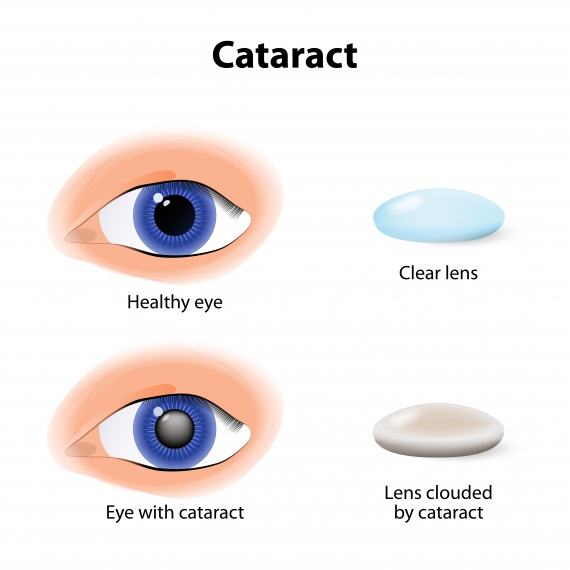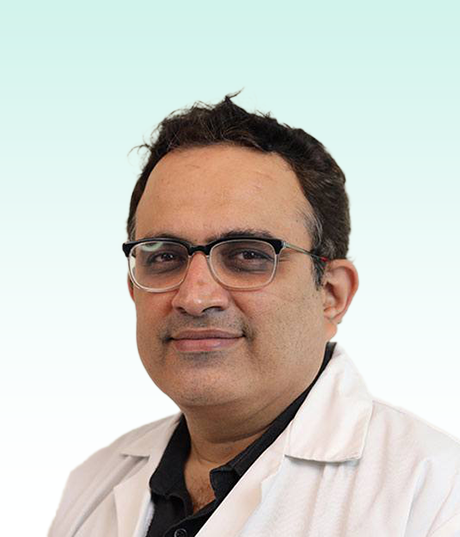Cataract Surgery
Cataract surgery aims to treat cataracts. Cataracts are a clouding of your eye lens because of the clumping of proteins. As a result, your vision could worsen over time. They’re the world’s leading cause Trusted Source of blindness. Cataract surgery is one of the most common and safest surgeriesTrusted Source is performed in the United States. As many as 95 percent trusted Source of people who undergo the procedure experiences an improvement in the sharpness of their vision.
Who Needs Cataract Surgery
Cataract surgery may be recommended for individuals who experience the following:
Vision Impairment: Blurred or cloudy vision that affects daily activities, such as reading, driving, or recognizing faces.
Visual Disturbances: Sensitivity to glare, difficulty seeing in low-light conditions, or increased difficulty with contrast sensitivity.
Decline in Quality of Life: Cataracts that significantly impact an individual’s ability to perform routine tasks or participate in activities they enjoy.
When to See a Specialist
If you notice any changes in your vision, such as blurry or hazy vision, difficulty with night vision, or an overall decrease in visual clarity, it is advisable to schedule an appointment with an ophthalmologist. They will conduct a comprehensive eye examination, including visual acuity tests and a thorough evaluation of the lens to determine if cataract surgery is necessary.
Procedure
Anesthesia: Local anesthesia is administered through eye drops or an injection to numb the eye and ensure a painless procedure.
Incision: The surgeon creates a small incision in the cornea, the clear front surface of the eye.
Capsulorhexis: A circular opening is made in the front portion of the lens capsule to access the cataract.
Phacoemulsification: An ultrasound probe is inserted through the incision to break up the cataract into tiny pieces, which are then gently suctioned out.
Intraocular Lens Implantation: An artificial intraocular lens (IOL) is inserted into the lens capsule to replace the removed cataract.
Wound Closure: The incision is usually self-sealing and does not require stitches.
Postoperative Care: The eye is usually covered with a protective shield, and the patient is provided with instructions for postoperative care and the use of eye drops.
Road to Recovery
The recovery period following cataract surgery is typically short. Most individuals experience improved vision within a few days to weeks after the procedure. However, it is important to follow the postoperative instructions provided by the surgeon, which may include using prescribed eye drops, avoiding strenuous activities, and protecting the eye from injury or infection.
Risk Management
Although cataract surgery is considered safe, there are potential risks and complications, including infection, bleeding, retinal detachment, and secondary cataracts. Adhering to the postoperative care instructions, attending follow-up appointments, and promptly reporting any concerns to the ophthalmologist can help minimize these risks.
Benefits of Cataract Surgery
Improved Vision: Cataract surgery can significantly improve vision by removing the cloudy lens and replacing it with a clear intraocular lens, leading to sharper and clearer vision.
Enhanced Quality of Life: Restoring clear vision allows individuals to perform daily activities with ease, regain independence, and enjoy hobbies and social interactions.
Reduced Dependence on Glasses: Depending on the chosen intraocular lens, cataract surgery can reduce the need for glasses or contact lenses for distance or near vision.
Frequently Asked Questions
Is cataract surgery painful?
No, cataract surgery is typically painless. Local anesthesia is administered to numb the eye, and patients may experience mild pressure or discomfort during the procedure, but not pain.
How long does cataract surgery take?
The surgery itself usually takes around 15 to 30 minutes. However, patients should expect to spend a few hours at the surgical facility to allow for preoperative preparations and postoperative recovery.
Will I need to stay overnight in the hospital after cataract surgery?
Cataract surgery is typically performed on an outpatient basis, meaning patients can go home on the same day of the procedure. In rare cases where complications arise, an overnight stay may be necessary.
How soon will I notice improved vision after cataract surgery?
Many patients experience improved vision within a few days after cataract surgery. However, it may take a few weeks for the vision to stabilize and for the full benefits of the surgery to be realized.
Treatment Plans
- Trauma & intensive care $59
- Aged Care $29
- Community Services $25
- Diagnosis & Investigation $48
- Medical & Surgical $82
- Mental Health $74
- Rehabitation $24
- Specialised Support Service $19
- Trauma & intensive care $59
- Aged Care $29
- Community Services $25
- Diagnosis & Investigation $48
- Medical & Surgical $82
- Mental Health $74
- Rehabitation $24
- Specialised Support Service $19
Treatians As The Best Choice
Treatians understand that seeking medical treatment abroad can be a daunting experience for patients and their families. That’s why the company offers end-to-end support to its clients, from the initial consultation to post-treatment care. The company provides personalized treatment plans that are tailored to meet the individual needs of each patient, and its team of dedicated professionals is always on hand to provide guidance and support throughout the entire process. Contact us at +91-7982312582, drop your email [email protected]
- Trauma & intensive care
- Aged Care
- Community Services
- Diagnosis & Investigation
- Medical & Surgical
- Mental Health
- Rehabitation
- Specialised Support Service
Service Recipient Says

Oxmox advised her not to do so, because there were thousands of bad Commas, wild Question Marks and devious.
Kolis Muller NY Citizen
Oxmox advised her not to do so, because there were thousands of bad Commas, wild Question Marks and devious.
Kolis Muller NY Citizen














Oxmox advised her not to do so, because there were thousands of bad Commas, wild Question Marks and devious.
Kolis Muller NY Citizen